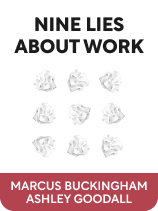

This article is an excerpt from the Shortform book guide to "Nine Lies About Work" by Marcus Buckingham and Ashley Goodall. Shortform has the world's best summaries and analyses of books you should be reading.
Like this article? Sign up for a free trial here .
How important is work-life balance? Does work-life balance lead to fulfillment?
According to Ashley Goodall and Marcus Buckingham, the authors of Nine Lies About Work, maintaining a work-life balance can actually burn you out and make you unhappy. Instead, they suggest finding a job that you love so you won’t feel drained.
Here’s why work-life balance is overrated.
The Folly of Work-Life Balance
How important is work-life balance? According to Goodall and Buckingham, the idea that people should strive to maintain a work-life balance—to toil enough so that we can have the money to support the people and the activities we love, but not too much that we burn out. Buckingham and Goodall argue that this mindset is flawed because it implies that work drains our energy. Therefore bad, while life outside of work replenishes our energy and is therefore good.
(Shortform note: Experts contend that work itself may not drain our energy, but rather three problems at the organizational level: 1) excessive collaboration, 2) limited time-management abilities, and 3) the tendency to overload the most capable workers. Streamlining organizational structures and routines can keep employees from multitasking, help conserve their energy for the most productive tasks, and prevent burnout.)
The Truth: Doing What You Love Leads to Fulfillment
The authors say that you should change your mindset from seeking the importance of a work-life balance to deliberately doing work that you love over work that you hate. This means that you should spend more time doing work that invigorates you and that gives you a sense of purpose, instead of toiling just so you can enjoy life outside of work. The authors stress that this doesn’t mean looking for a job that you love completely but incorporating what you love to do into the job you already have—they cite research that says devoting just 20% of your time to tasks that you love greatly decreases the risk of burnout. It also makes you more productive and increases your sense of purpose and fulfillment.
(Shortform note: Others contend that loving your work doesn’t make you immune to burnout—in fact, some experts say that an all-consuming love for work can lead to burnout. Those involved in purpose-driven, mission-focused work, such as non-profit employees and health care workers, are especially prone to letting their passion take over their lives. One way to prevent this from happening is to set up boundaries by making a conscious decision to switch off from work mode and resisting the urge to check your email past a certain time.)
To help you and your team members find love for your job to avoid that work-life balance burnout, the authors recommend that you track the work that you do. Twice a year, spend a week categorizing your tasks into two groups: The first group should consist of the tasks that you look forward to, that you enjoy doing, that energize you, and that makes time go by quickly; the second group should consist of the tasks that you tend to put off or pass on to someone else. Deliberately incorporate the tasks in the first group into your work so that they take up at least 20% of your time. Then, manage the tasks that you hate by avoiding them (if possible), combining them with something you enjoy, or working with someone to make a task less burdensome.
(Shortform note: The authors recommend evaluating what you love and what you hate twice a year, but other experts say that you should engage in continuous self-reflection and improvement. When you don’t evaluate regularly, it’s easy to fall back into old habits. Aside from taking the time to logically sort through your priorities, you should pay close attention to your emotions—negative emotions like resentment are a powerful indication that you need to make changes.)

———End of Preview———
Like what you just read? Read the rest of the world's best book summary and analysis of Marcus Buckingham and Ashley Goodall's "Nine Lies About Work" at Shortform .
Here's what you'll find in our full Nine Lies About Work summary :
- The nine organizational lies and what leaders can do to address them
- Why free lunches and breakroom pool tables don't matter
- Why you should stop seeking a work-life balance






